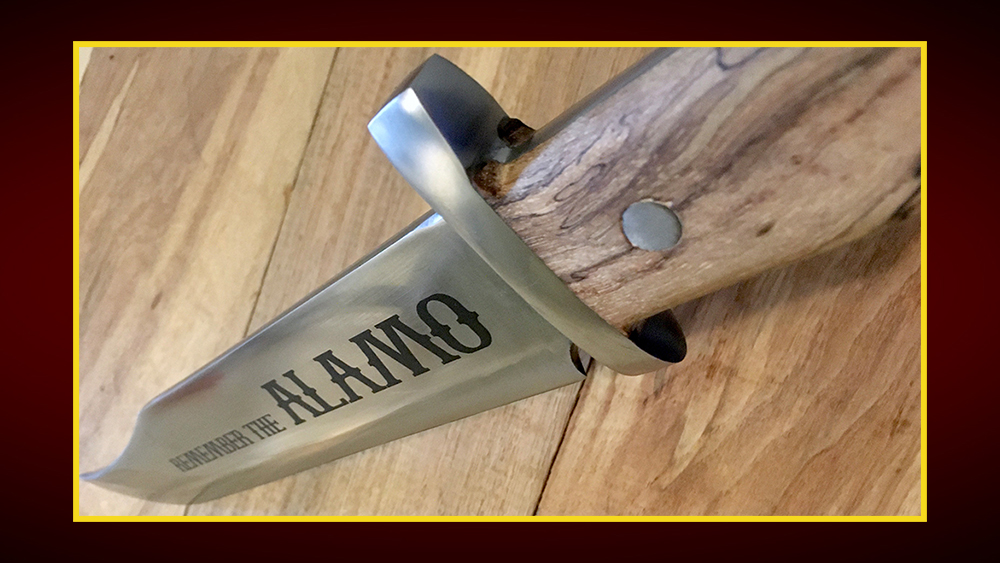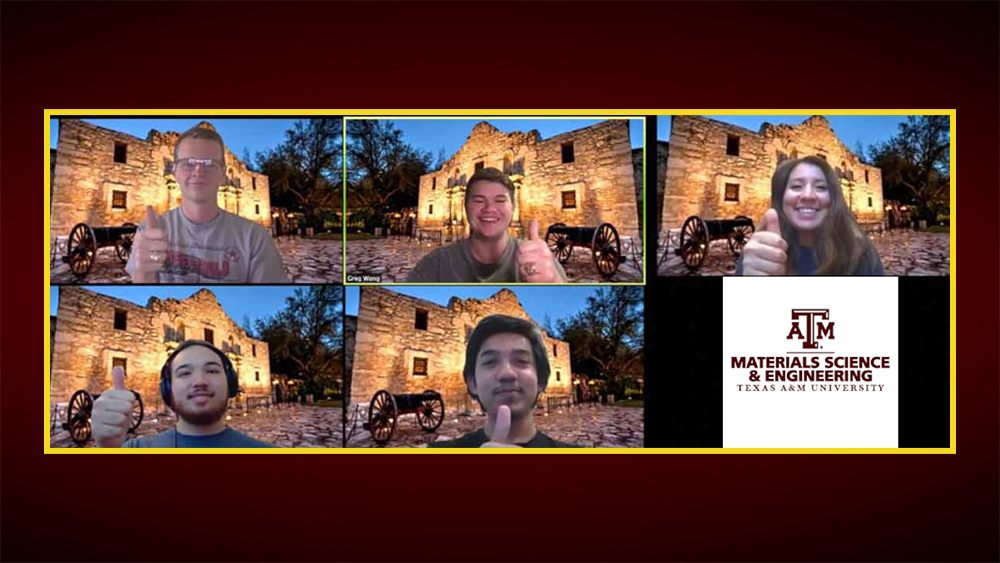
The first cohort of undergraduate students from the Department of Materials Science and Engineering at Texas A&M University has been awarded the Best Technical Report, one of the top three awards in the Steel Founders’ Society of America (SFSA) second annual Cast in Steel 2020 Competition.
The winning team included five seniors: Nathaniel Lies (team lead), Bianca Avila, Garrett Smola, Tafimul Tasif and Gregory Wong.
This competition challenged the students to translate what they had learned so far in their coursework to a fun engineering problem.
There were 18 teams competing from universities across North America, each tasked with designing and producing a Jim Bowie-style knife. Apart from creating actual knives, the competition also required a technical report and a video presentation.
Bowie knives have characteristically long, double-edged blades and are traditionally used in hand-to-hand combat.
To start, the team computationally modeled the blade, tang and guard in Solidworks. From there, the long process of brainstorming began.

For the body of the knife, the team used D2 steel – a material that is extremely hard as well as wear- and corrosion-resistant – to cast the knife. Utilizing the investment casting technique for manufacturing, they first designed and 3D-printed their blade pattern using photopolymer, materials that change properties when exposed to light. This was then dipped into a ceramic slurry to create a ceramic shell.
The team worked with TexCast Inc., a Houston-based foundry, to pour molten D2 steel into the ceramic shell and successfully cast the knife’s blade.
Finally, they heat treated, ground and polished the blade, attached it to a handle made from spalted pecan wood and laser sharpened it before submitting the knife for judging.
The team was advised by Dr. Ankit Srivastava, assistant professor in the department.
"It is exhilarating to see students put their classroom knowledge to work and succeed," said Srivastava. "What makes it really special is that the students were able to achieve this in the midst of a pandemic. This shows us that our students are ready to face any challenge that the future has to offer."
The team summarized their project in a video that can be viewed here.